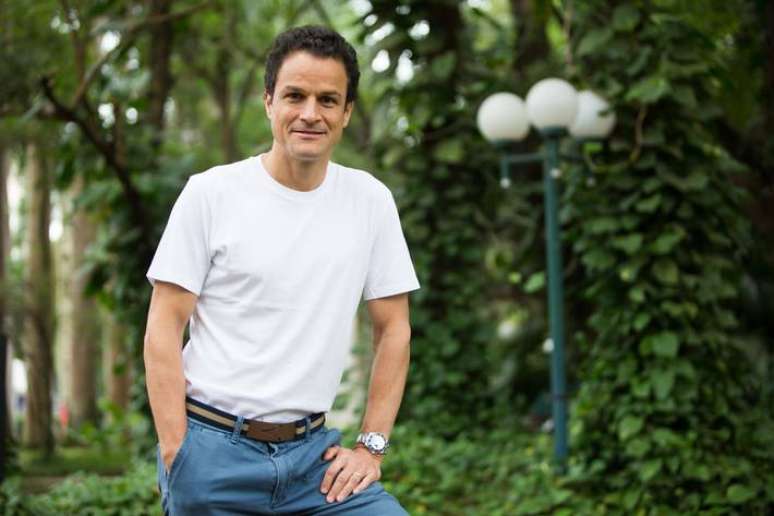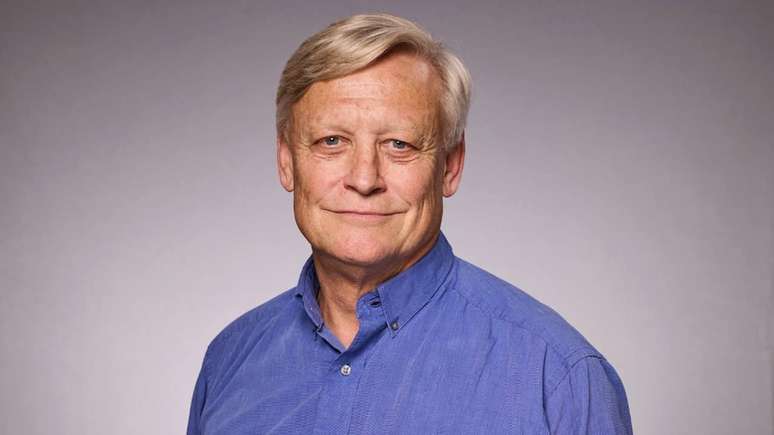Former skier Marcelo Apovian uses learning from sports to guide executives to high performance
30 years ago, Marcelo Apovian’s challenge was in the world of sports, competing with top-level athletes in alpine skiing at the Olympic Games. From the snow to the office, Apovian has had a long career as a headhunter, during which he has interviewed more than 5,000 mid- and top-level professionals for large companies.
The upshot of this mapping is that now, at age 50, the former Olympian has created a method that promises to improve the performance of CEOs and other executives. It is based on a blend of meditation, sleep, food and family life. “Leaders need to have a moment of calm, a breather,” she says.
Watch some excerpts from the interview:
What has skiing taught you in terms of leadership and performance?
I started competing at the age of 14. Of course, I didn’t even know what leadership was. My concern was to become as good as possible in the sport, which was so difficult because there was no snow in Brazil. But when you enter the corporate world, the puzzle comes together. The sports world and the corporate world are very similar. You learn to lose, you learn to win, to focus, to be resilient and to take risks. Only those who risk are good.
I started with judo, then skiing and finally athletics. In individual sport there is a structure behind you that supports you. So people have to believe you. It doesn’t matter if the dream is to found an educational company, become president of a billion-dollar company or go down a mountain. The leader, the athlete and the entrepreneur must have this leadership.
A good leader gives you the fuel you need at the time, takes the fuel off you when you are very energetic, he is the one with the sensitivity to make things happen. In sport, if you want to become a champion, it is exactly that: the team around you must believe in your commands, which will lead you to be the best in the world.
When did you realize that sports had prepared you for the corporate world?
When you’re an athlete, you learn a lot from the coach. He is the person who puts the house in order. I saw how he coached me. When he had to squeeze, he squeezed. When he had to praise, he praised. I found my sports skills were good for the corporate world when I had a bad boss.
I thought the commands it gave were awful, I disagreed and knew it wasn’t going to work. I clearly remember him saying, “oh, we leave the office at noon on Fridays to improve the quality of life.” It was 2006, there was no possibility of leaving early. I said let’s go to work, I don’t want to go home, we have to give the number to the manager. he was my manager [o chefe], I was the consultant. It was there that I discovered I could be a good leader.
What is, in your view, the most important leadership skill?
Humility. The foot on the ground to know how to listen, to know how to listen to others. When you’re up there, whether you’re a politician or an executive, the tendency is to protect yourself from bad news on your profile. So, people always want to flatter you, always want to say that you are good.
Top leadership never really has a clear vision of where they are. Sometimes it’s the advice that speaks volumes, but it’s hard [alta liderança] also have a vision of her. Contains a lot of inaccurate information. And humility makes you know how to listen, accept feedback from a subordinate, makes you walk the corridors of the company, makes you talk to everyone, from the cleaning lady to the vice president who reports directly to you.
For example, Paulo Kakinoff, former CEO of Gol, before taking office, flew, talking to flight attendants and pilots. And then, at the end of each flight, he’d show up and say he’d be at the bottom of the stairs and he’d like to hear from people.
He had a notebook and kept writing down feedback from the flight attendants, captains and customers. When he became CEO, he already knew what needed to be done because he listened to people. He is an example of high performance leadership. Down to earth and humility.
What is the profile of high performance leadership?
Lending means doing your best at what you set out to do. There are two types of leadership: momentary and everlasting. Momentary leadership is that leader, that CEO who has a big ego, who likes to talk about it and who overestimates the results achieved by him and the team. We have more leaders with this self-centered leadership style than we have with the broader view.
Perennial leaders are people who achieve a very high level of performance. For example, one of my criteria for investing in a stock on the stock market is whether the leader of the company is self-centered. With the self-centered, stocks will eventually go down. The perennial CEO might have his stock go down due to results, inflation, or some variable he doesn’t control, but I tend to believe they go up more because of the perennial leader’s management.
How does happiness and mental health become a factor in team engagement?
I have seen a lot of toxic leadership destroying the team. Just like I’ve seen so many toxic coaches destroying athletes. Humble leadership, who stays focused, doesn’t get lost in glamor and results, manages to maintain a healthy environment even when under pressure.
The CEO’s life is very difficult, because he receives pressure from the board, from the shareholder and he must know how to filter this pressure so as not to pass it on to the lower team. But to get results you need to have production coming from the team further down as well.
The CEO always has the following scenario: talk to the lower class and talk to direct reports and shareholders. When he locks himself in the room, the decision is his. It’s a lonely decision.
If it works, congratulations are in order. If it goes wrong, you get fired or the stock crashes. It’s not easy being a leader and when you’re under pressure to keep the environment healthy it’s even harder. We cannot confuse achievement with mental health. We can have delivery and results with mental health.
Life is much more downhill than uphill. These ultra-high performers perform better because they can have the coolness and creativity during a crisis to emerge much stronger.
html[data-range=”xlarge”] figure image img.img-f86721bd847ba6866bccf261ad11577bnx1c98xx { width: 774px; height: 516px; }HTML[data-range=”large”] figure image img.img-f86721bd847ba6866bccf261ad11577bnx1c98xx { width: 548px; height: 365px; }HTML[data-range=”small”] figure image img.img-f86721bd847ba6866bccf261ad11577bnx1c98xx, html[data-range=”medium”] figure image img.img-f86721bd847ba6866bccf261ad11577bnx1c98xx { width: 564px; height: 376px; }HTML[data-range=”small”] .article__image-embed, html[data-range=”medium”] .article__image-embed {width: 564px; margin: auto 0 30px; }
How can leaders achieve this high performance?
You have to study, be humble to listen, and be open to new learning. It’s always nice to have a mentor. Father, mother, a friend, boss or someone who can help in this path full of discipline and concentration.
Focused and disciplined leaders know how to fall and get back up very quickly. It’s another thing to know how to reinvent yourself. What you are doing, what has worked so far is not necessarily what will work from now on.
Fear is another factor in procrastination. Fear prevents you from taking the next step and is a career-destroying trigger.
How to fight this culture of fear in professional life?
High-performing leaders turn fear into fuel. Which is different from fragility, which is part of the game. At some point, people become vulnerable. Fear is also part of the game but people need to control it as it can be very toxic.
The fear of not being liked by my boss, the fear of not being promoted, for example. It’s knowing how to filter what you feel.
This is why I believe in humble leaders, willing to make mistakes and quickly correct the course. The person with a big ego never makes a mistake, or takes the time to admit the mistake, or blames someone else for the mistake, or takes the risk that he has to take because he doesn’t want to risk exposing himself.
In your book “Far Above Average” you argue for structural intelligence. What does it mean and how important is it to achieve high performance?
It is a level that precedes emotional intelligence. If there is structural intelligence, it will overcome the problem of emotional intelligence well. So I created the method TABLE + family: Awareness, Sport, Sleep and Nutrition. If you perform them often, you have a much better chance of performing. Leaders need to have a moment of calm, a breather.
It could be a game of chess, golf, dominoes, something that takes you out of your tough routine. Sport decreases anxiety, sleep decreases anxiety. You have to eat well and socialize.
Because you will never feel the purpose of a company that doesn’t involve people. We don’t do anything if there’s no one involved in the story. So, family life which I call family is social life in general.
These five elements are factors that balance having emotional intelligence when hitting a low and the ability to bounce back quickly.
How do these elements work in practice?
Meditation is so powerful that it should be mandatory for any CEO, any president because these people are in moments of absurd tension. Meditation provides peace of mind so leaders can think more clearly.
For those who need to make a decision on an outcome that the council asks for with violent pressure, for example, having meditated, having knowledge about meditation, how to connect with yourself in that moment is essential.
And for those who don’t like to meditate?
Some people don’t like to meditate, but they like to run. Running is a meditation. Cycling is a meditation.
If you run alone, what are you doing? You breathe, your thoughts come and you send them away. Or sometimes you just leave it there and enjoy that thought. Then you change your mind, it’s a kind of meditation.
But if you ride with someone or in a group it’s not meditation, it’s exchanging ideas with someone. Many people meditate without knowing it.
Source: Terra
Ben Stock is a lifestyle journalist and author at Gossipify. He writes about topics such as health, wellness, travel, food and home decor. He provides practical advice and inspiration to improve well-being, keeps readers up to date with latest lifestyle news and trends, known for his engaging writing style, in-depth analysis and unique perspectives.







